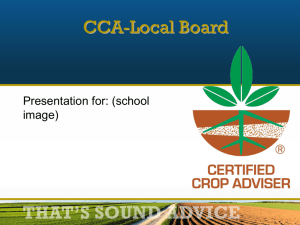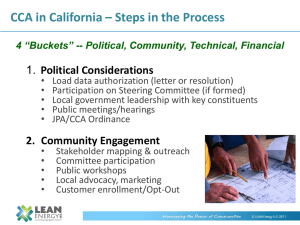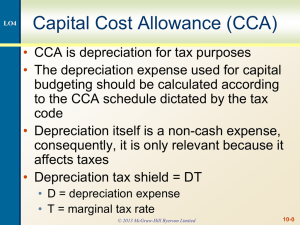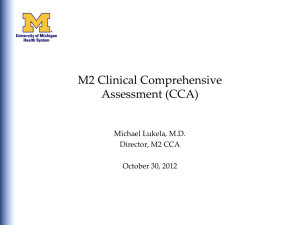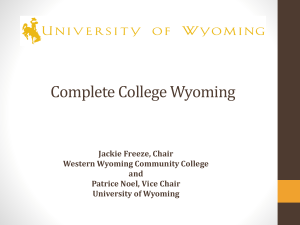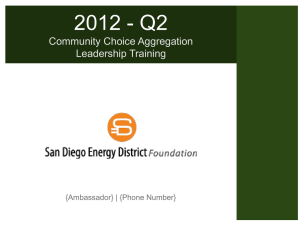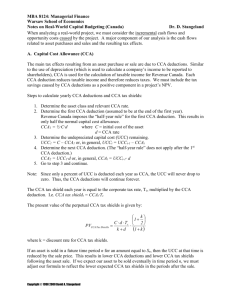CO PowerPoint Presentation
advertisement
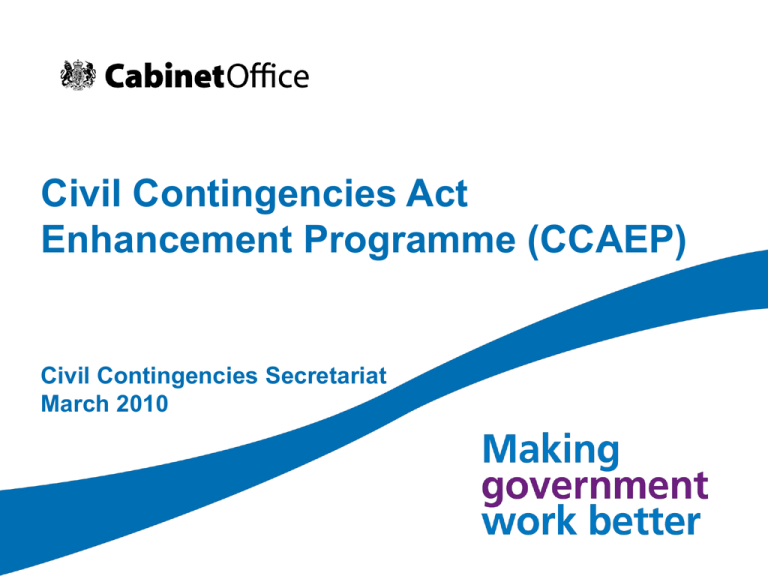
Civil Contingencies Act Enhancement Programme (CCAEP) Civil Contingencies Secretariat March 2010 Objectives of this presentation… Background to change Buncefield Outcomes Progress to date CCAEP Structure and timetable for delivery 11 December 2005 – “The Bed Shook” Buncefield Report and CCA Buncefield Investigation was a major driver for change. CCA Enhancement Programme to look at outcomes from this and Pitt Review. Buncefield Recommendations 1. Communicating with the Public. (R9 & 20). 2. National Guidance on Off Site Emergency Planning (R14,15). 3. Off Site Emergency Provisions (R17,18,19) 4. Mutual Aid and National Inventory (R23, 24) 5. Information on Assessing Environmental Harm (R32) Communicating With the Public Competent Authority should review COMAH guidance to assist operators and should work with Cabinet Office to integrate COMAH guidance and Communicating with the Public so that communications regarding COMAH sites are developed jointly by the site operator and local emergency responders. LRF’s and devolved equivalents should assess and advise: operators, LA’s and CA on the effectiveness of communications with residents, local businesses, duty holders and the wider community in the event of a major incident. National Guidance on Off Site Emergency Planning CCS working with the Competent Authority should arrange for national guidance to Local Authorities to be prepared… Guidance should also address competencies required for emergency planners, and be clear on resources that may be demanded for effective planning function. Local Authorities should review their off site response plans with input from trained/competent planners, work in conjunction with neighbouring local authorities in planning and exercising. Off Site Recommendations Local authority should ensure their off site emergency plans give due considerations to meeting welfare needs of responders on all shifts. Plans should include guidance on rest breaks and provision of accommodation for responders from outside of the local area. Plans should make provision for the contribution of the volunteer community in attending major incidents in welfare and other supporting roles. Off Site Provisions Continued Local authorities should ensure their revised off site emergency arrangements for COMAH sites are tested. CCS and Competent Authority should compile exercise scenarios based on real incidents. Category 1 responders to ensure their staff are trained Local Authority should arrange for councillors/elected members to have awareness training in emergency planning. Mutual Aid Operators of industrial sites with risks of large explosions or complicated fires should put in place national industry fire service mutual aid arrangements. Fire and Rescue Authorities and devolved equivalents should review availability of materials/equipment nationally and determine if they are sufficient to respond to and manage major incidents. Information on Assessing Mutual Harm The Environment Agency should complete as soon as possible its review of methodologies for assessing potential harm to the environment. What are the Outcomes? Emergency Response and Recovery Updated Emergency Response and Recovery Guidance Published in August 2009. Expectations and Indicators of Good Practice Set (Operational Capabilities) published June 2009. The Fit With Other Legislation Draft Guidance. Consultation finished 26 February. Formalising links with COMAH planning and CCA. Specific mention of the Working Time Directive and needs of personnel supporting the response. Looks at risk assessments, society risk and communicating with the public. Occupational Standards National Occupational Standards for Civil Contingencies developed in conjunction with Ministry of Justice and Emergency Planning Society Short Guide To Local Authority Mutual Aid published December 2008. Re-write of Chapter 3 Emergency Preparedness Information Sharing. Consultation closed on 26 February Civil Contingencies Act Enhancement Programme CCA Enhancement Programme Looking at potential policy options for the Government of the day. Projects under spotlight include: Communicating With the Public Encouraging Community Resilience Strengthening Recovery Responders and responder categories Looking at CNI Considerations before using EP Before using the Enhancement Programme, it is necessary to confirm that a change in legislation is really necessary. Phase 1 Phase 2 Phase 3 Phase 4 Improving the existing framework Further scope for change Enhancing the CCA Implementation UPDATE OF EMERGENCY RESPONSE & RECOVERY REFINING EXISTING CCA DUTIES BROADENING THE SCOPE OF THE CCA DUTIES NEW CCA RESPONDERS RENEWING CCA ARRANGEMENTS FOR LONDON BETTER FIT WITH OTHER LEGISLATION IMPROVING CCA COMPLIANCE & PERFORMANCE DEVELOPMENT ENHANCING NATIONAL & REGIONAL RESILIENCE ARRANGEMENTS BETTER RESPONDER ENGAGEMENT & COLLABORATIVE WORKING – PHASE 2 IMPROVING COMPLIANCE & PERFORMANCE DEVELOPMENT IMPLEMENTATION OF NEW GUIDANCE AND PRACTICES IMPLEMENTATION OF NEW GUIDANCE AND PRACTICES DELIVERY OF NEW CCA ARRANGEMENTS NON-LEGISLATIVE CHANGES Development of and consultation on further nonlegislative refinements on CCA implementation REVIEWING RESPONDERS & RESPONDER GATEGORIES BETTER RESPONDER ENGAGEMENT IN COLLABORATIVE WORKING LEGISLATIVE CHANGES Detailed proposals and impact assessment development for consultation and Parliamentary scrutiny UPDATE OF CCA GUIDANCE Update of statutory and non-statutory guidance CCA AMENDMENT BILL, GUIDANCE AND POLICY MEASURES MONITORING PERFORMANCE TO INFORM LONGER-TERM POLICY DEVELOPMENT Timescales April 2010 Consultations and policy development May 2010 Phase Two recommendations to go to Cross Government Steering Group June 2010 Recommendations to Ministers Autumn 2010 Full Consultations with Stakeholders CCA Timeline 2008 2009 2010 2011 2012 MAY JUN JUL AUG SEP OCT NOV DEC JAN FEB MAR APR MAY JUN JUL AUG SEP OCT NOV DEC JAN FEB MAR APR MAY JUN JUL AUG SEP OCT NOV DEC JAN FEB MAR APR MAY JUN JUL AUG SEP OCT NOV DEC JAN FEB MAR APR MAY JUN JUL AUG SEP OCT NOV DEC Phase 1 – Improving the Existing Framework Update of Emergency Response & Recovery guidance Better Fit with Other Legislation Renewing CCA Arrangements for London New Responders Better Responder Engagement in Collaborative Working Improving CCA Compliance and Performance Management Methods Phase 2 – Further Scope for Change Refining the CCA Duties Broadening the Scope of CCA Duties Reviewing Responders & Responder Categories Enhancing National & Regional Resilience Arrangements Better Responder Engagement in Collaborative Working – Phase 2 Improving Compliance & Performance Development Phase 3 – Enhancing the CCA Legislative Changes Non-Legislative Changes Update of CCA guidance Phase 4 – Implementation Delivery of New CCA Arrangements Contacts for further information: ccact@cabinet-office.x.gsi.gov.uk www.cabinetoffice.gov.uk/ukresilience Tel: 020 7276 5476, 5055 or 5017
